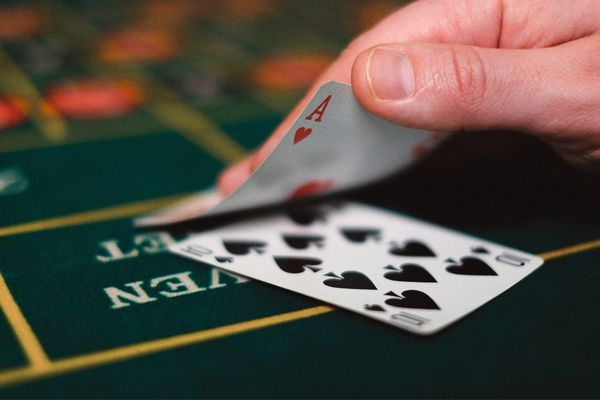“Should I divorce my gambling husband Gambling,” as this may strain a marriage financially and emotionally, just like any other addiction? In most cases, this stress can lead to the breakdown of the wedding.
Divorcing a gambling addict becomes necessary when you acknowledge that addictions can take over people and become uncontrollable. Without help or divorce, the marriage and family can suffer irreparable damage.
Should I divorce my gambling husband?
Gambling is the act or activity of betting money, which involves two or more persons, for example, in a card game or horse racing. When someone gets addicted to such actions, the consequences on the person or family can be severe, depending on the depth of the compulsion.
It is very honorable to stick by one’s spouse during a gambling addiction, but it is also safe to walk away if the situation becomes unbearable, or you and your children (if you have any) will have to pay the price too.
As the spouse of a gambling addict, it is crucial to understand the difficulties that may accompany a divorce. Like alcohol, drugs, or even infidelity can negatively influence a relationship, compulsive gambling does the same.
The effects of a spouse’s gambling addiction can be devastating to your marriage, finances, and ability to trust someone because marriage is like a “joint partnership”; the other spouse gets affected by most, if not all, the actions of their partner. Then they will have to deal with the problems, too, infidelity, financial issues, and other marriage complications.

Is Gambling Addiction Enough Grounds For A Divorce?
Many people have lost their everyday lives and properties to irresponsible gambling, and sadly, the effects of this conduct are regrettably not limited to gamblers alone. Their families are usually affected in one way or the other.
While gambling in most states is not explicitly listed as grounds for divorce, it may fall under one of the existing grounds like “insanity,” “vicious conduct,” or ” criminal conviction,” but this all depends on the extent of your spouse’s behavior.
When a couple’s relationship and finances are harshly harmed by one of the spouse’s gambling addictions, they should get a counselor or an attorney. Whatever path you decide should help you and your family move forward, even in the most challenging times.
A gambling addiction can develop when a person believes they are in a financial crisis and can only solve their economic issues by gambling with whatever amount they have to win an enormous amount.
This usually begins as a loop where the gambler feels they have to compensate for their losses. The cycle continues until they are compelled to seek a therapist or a rehabilitation center to end their addiction habit.
The urge to make money, the desire for thrills, the social rank associated with being a successful gambler, and the exciting environment of the mainstream gaming or gambling scene are just a few variants that cause gambling addiction.
Similar to many other addictions, compulsive gambling can wreck a marriage. Gambling addictions result in divorce and can generate financial issues for spouses before or during a divorce.
Even when the gambling spouse wins big, when they do, it rarely amounts to enough money to make up for what they might have lost previously. The majority of gamblers never even approach breaking even.
Unfortunately, it is challenging to escape the cycle once a gambling addiction has a firm grip on a person. When someone feels desperate financially and seeks to recover what he might have lost, severe addictions may develop.
One spouse’s addiction to gambling is an issue that usually leads married pairs to seek divorce. A spouse with a gambling issue will undoubtedly cause conflict in a marriage, and divorce might be the only viable solution.
A gambling habit affects the marriage negatively in so many ways, including when the gambling partner becomes secretive and tries to hide the intensity of their need to gamble. They may also begin to hide other outcomes of their gambling activities from their partner, such as large amounts of credit card or loan debts and unpaid bills.
Eventually, every “little” amount of gambling can cause disagreements which can become heated over time and ultimately resolve in the nullification of the marriage.
Addictive risk-taking can have similarly disastrous effects. Financial hardship for both parties may result from a different component of financial loss, and the outcomes are usually heavy, especially if you have joint accounts.
It can be pretty challenging to agree on what exactly qualifies as problematic gambling, much like it might be with drinking. Still, you must walk away whenever your spouse’s gambling addiction interferes with your daily life or becomes disruptive or damaging to you and your family. The constant financial strain or secrecy in the marriage can put the other spouse in an awkward situation, and they might lose everything.
Getting Ready To Divorce An Addictive Gambler
Gambling addiction is a frequent deal-breaker in relationships and may make things more difficult. As spouses of people going through an addiction stage frequently discover, the ill’s of addiction affects everyone nearby.
Protecting your cash is one of the most crucial things you can do if you’re considering a divorce from a gambling addict.
Debt is a component of marital property, and this is where things can get tricky. Your marriage might be experiencing financial or emotional stress. So, you and your spouse might have to divide your marital assets during the asset division phase of the divorce process.
Generally, the court equitably divides property and debt, but when one spouse engages in financial misconduct or squanders marital assets, they might approach it differently. You might be able to convince the judge that you are not liable for your spouse’s debts if they occurred throughout the marriage due to their gambling addiction. For instance, you might not be obligated to pay off a substantial gambling-related debt on a joint credit line that you and your spouse hold.
During your initial appointment with an attorney, it will be helpful to know the probable scope of their losses and, consequently, your losses. You should gather as much evidence as possible to support your claim of wasted utilization of marital assets.
It will be simpler to demonstrate that you shouldn’t be held accountable for their debts the more financial facts you have. These records may include the following:
Standard family costs, account statements for banks, statements for investments and retirement accounts, balances and reports for credit cards, mortgages and lines of credit, taxes paid, etc.

Can A Marriage Survive A Gambling Addiction?
Your marriage may suffer from a gambling addiction on several levels, which include:
Your Ability To Trust
To conceal the fact that they have a problem, compulsive gamblers frequently lie or fabricate information. One of the first things that gambling addiction destroys in a marriage is trust.
Your Emotional Stability
Your partner’s gambling habit can significantly affect your emotional health, including feelings of betrayal, remorse, hurt, anger, etc.
Your Emotional Intimacy With Your Spouse
Gambling often causes people to neglect their family obligations and weakens their relationship with you, their spouse, and your children. Any form of addiction interrupts the normal functioning of communication in a relationship.
Financial Stability
Gambling addictions sometimes ruin joint finances. It is possible that, gradually, your family will not have enough funds for bare essentials like food or mortgage payments.
Your spouse’s excessive gambling can put a lot of strain on your marriage. It would be best to blame yourself for your lack of trust after what the song might have cost you and your family. Many marriages have gone through this phase, but not all made it out successfully.
According to research, every marriage has a 50/50 chance of enduring this phase, but it depends on the gambling one spouse has been involved in and the tolerance level of the other spouse, who may or may not be desperate for divorce.
To help your marriage work, your gambling spouse should be prepared to seek professional assistance and work to re-establish a solid foundation for trust.
What Do You Do If You Are Married To A Gambling Addict?
It is best to deal with your spouse’s serious gambling addiction problem head-on. Inform your spouse of the restrictions and guidelines you have put in place to safeguard your family and yourself.
The following are some critical considerations for such conversations:
Encourage your spouse to get professional assistance. Be confident and assertive so that they understand that you are serious.
Do not make threats like saying you will leave if your spouse doesn’t quit. Follow through on all of the points and decisions you make.
Prioritize the current problem over past actions or behaviors. Always focus on the issues at hand.
Inform them that you will not continue to help cover the possible debts incurred by their gambling activities.
Understanding how to behave around a spouse addicted to gambling might not be easy. It is never a good time when a relationship breaks down. Nobody appreciates becoming estranged from someone they loved or choosing to dissolve a marriage.
Conclusion
It solely depends on you to leave your spouse because of their gambling addiction.
Divorces are well-recognized to be emotionally draining, stressful, and generally unpleasant. Still, gambling wreaks havoc on a couple’s finances, and you could end up losing everything, and before it gets to this, you should take necessary measures to shield yourself and your children (if you have any).








